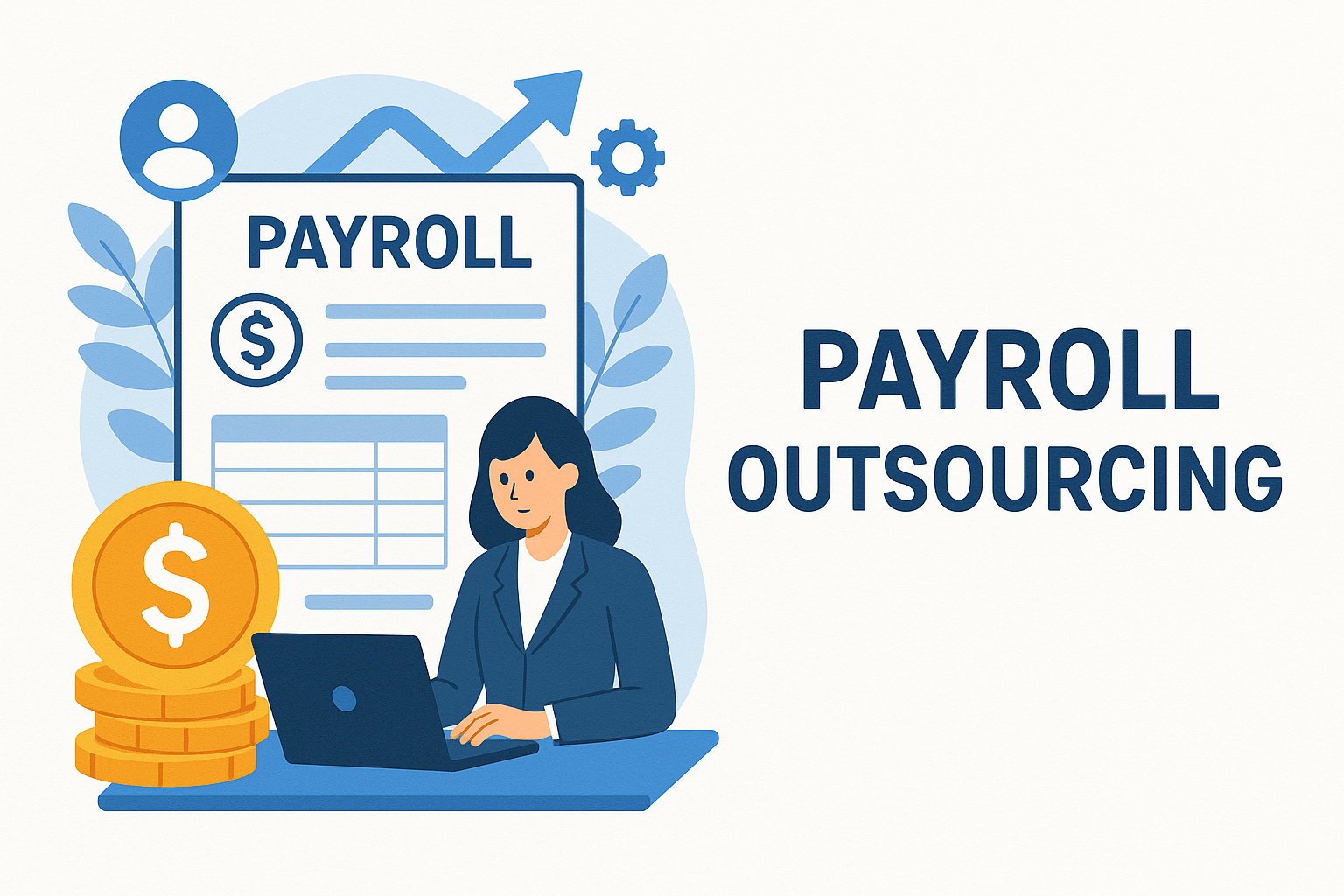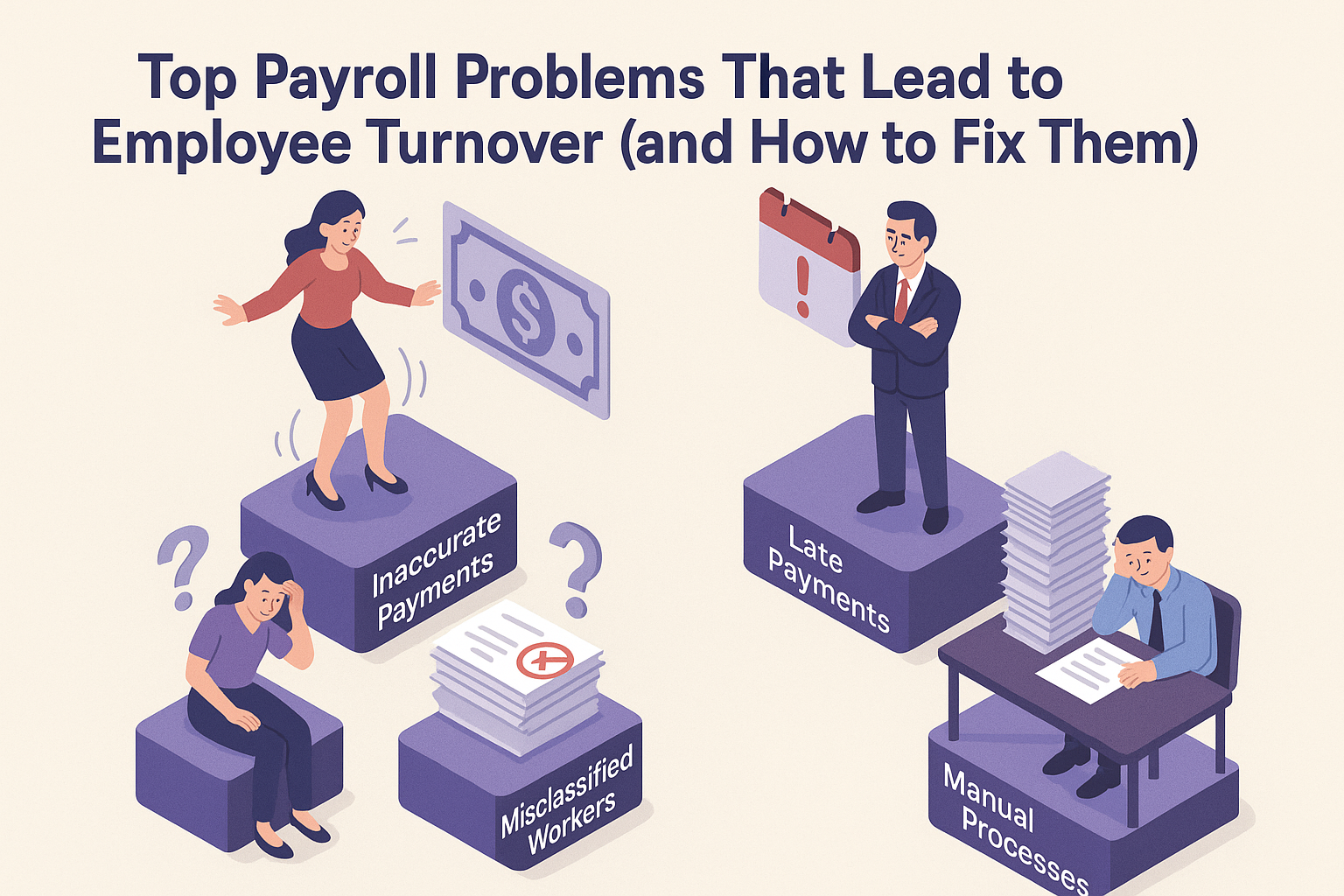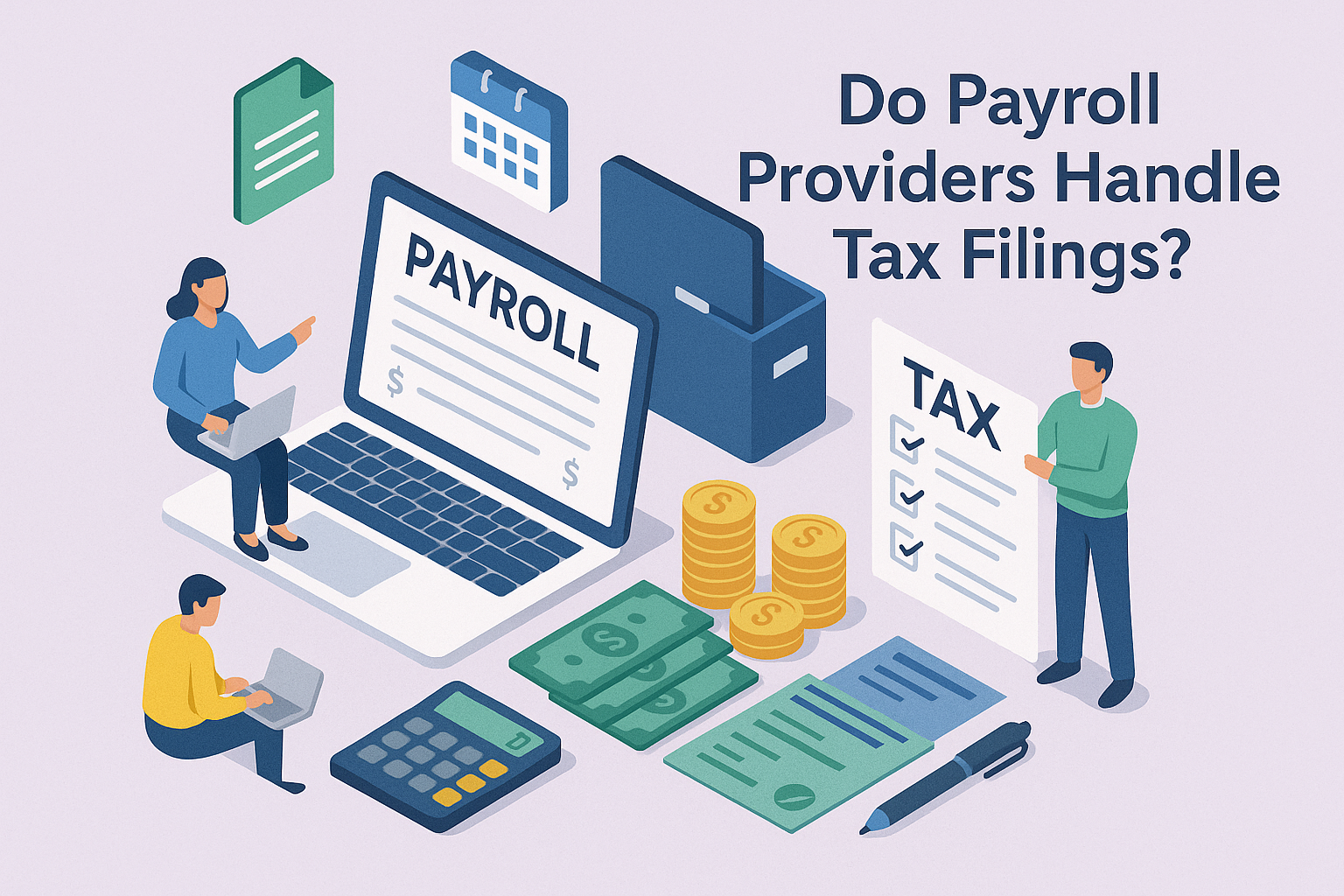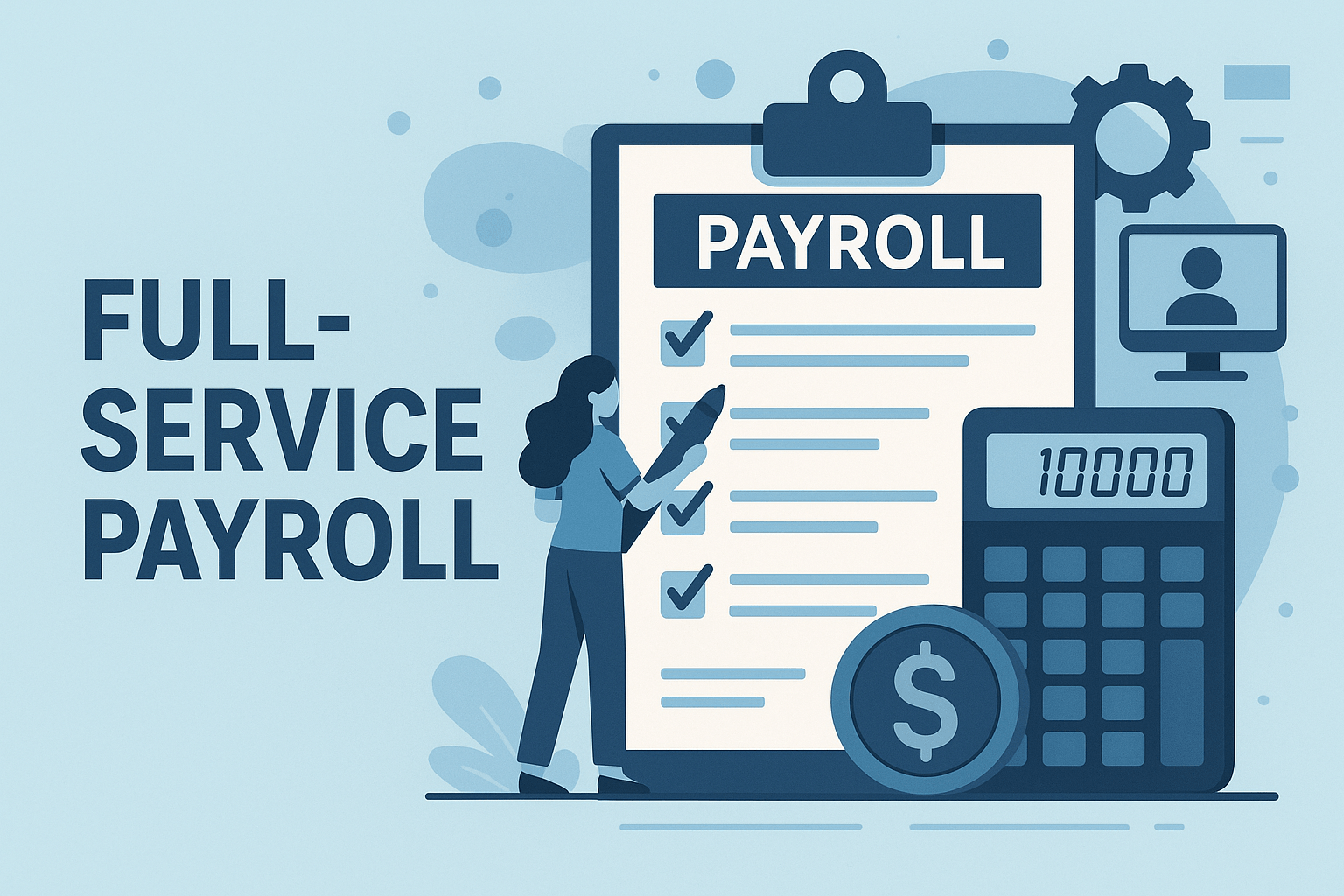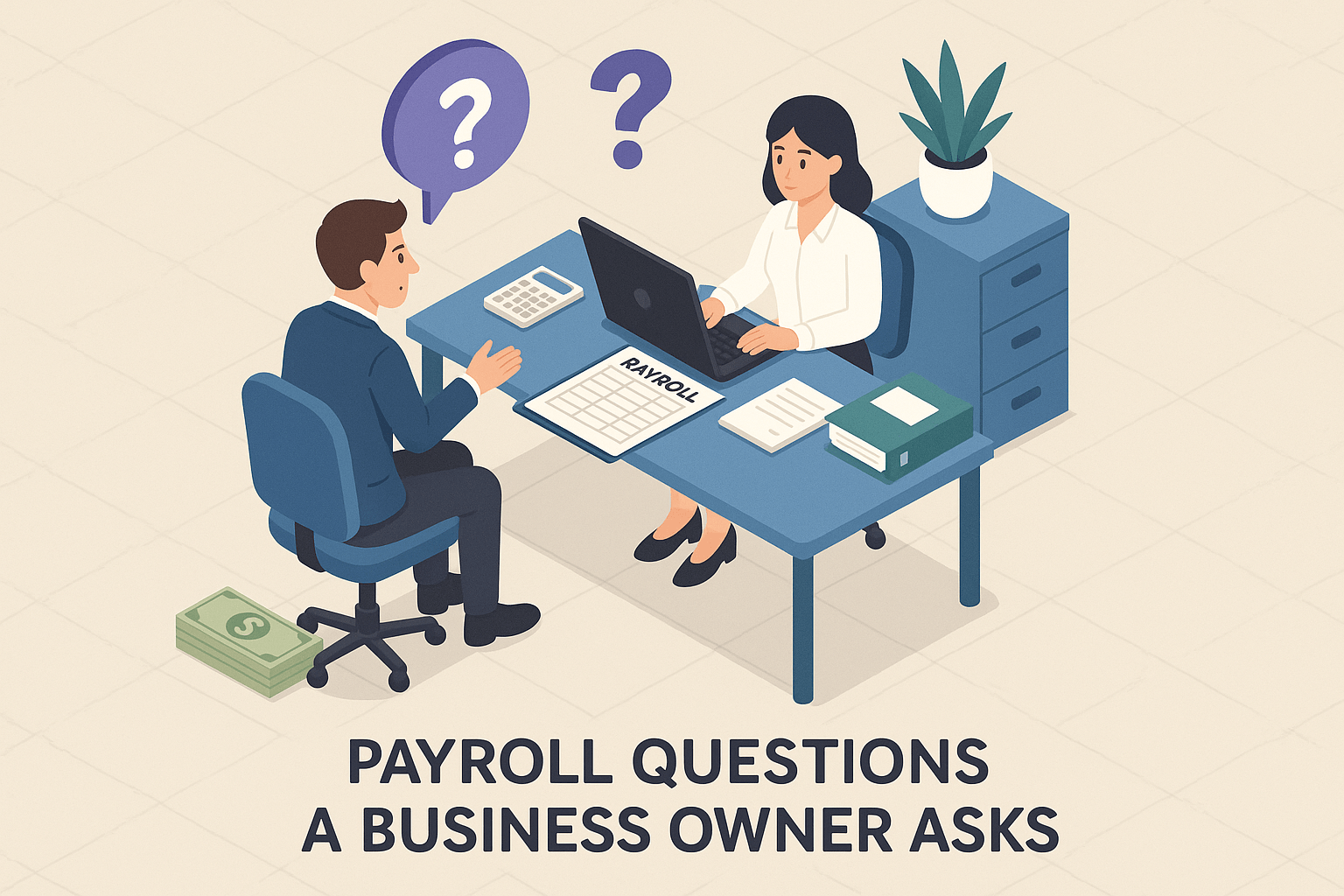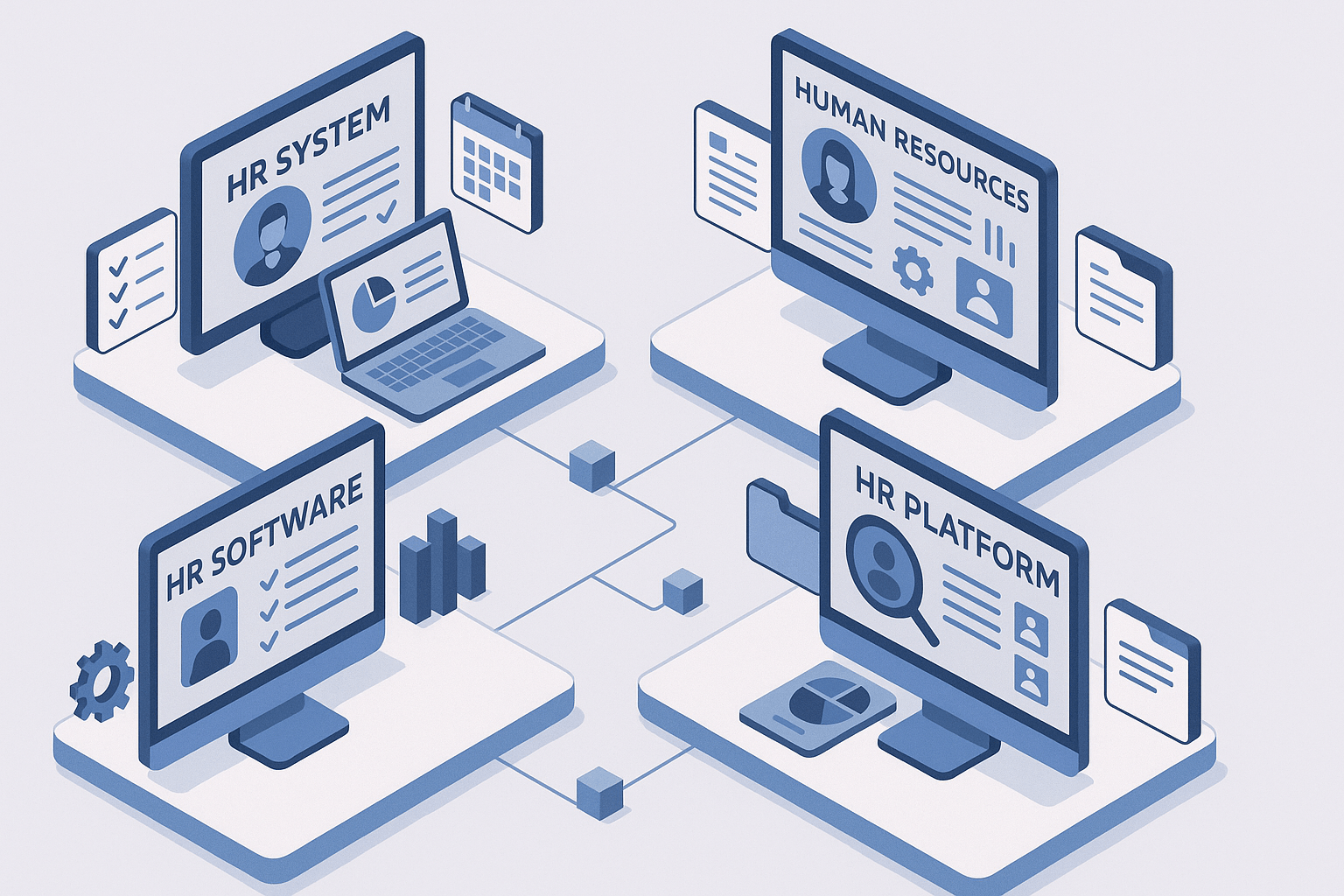What Causes Delays in Payroll Processing and How to Avoid Them
December 18th, 2024
4 min read
.jpeg?width=2000&height=1866&name=freepik__upload__77936(1).jpeg)
Payroll processing is one of the most critical responsibilities of any business. It ensures your team is paid accurately and on time, fostering trust and satisfaction. However, delays can creep in, leading to unhappy employees, legal risks, and operational disruptions.
At Lift HCM, we’ve seen firsthand how small payroll mistakes can snowball into major challenges. That’s why we specialize in helping businesses like yours streamline payroll processes and avoid delays. In this guide, we’ll dive into the most common causes of payroll delays, the consequences of late payroll, and proven strategies to avoid disruptions.
he most common causes of payroll delaysTable of Contents
- Why Timely Payroll Processing Matters
- Common Causes of Payroll Delays
- The Consequences of Payroll Delays
- Tips to Avoid Payroll Delays
- How Lift HCM Can Help Prevent Payroll Process Delays
- The Bottom Line: Simplify Your Payroll Process
Why Timely Payroll Processing Matters
In today's competitive business landscape, timely payroll is not just a nice-to-have; it's essential for survival.
Employee Satisfaction and Retention: Employees rely on their paychecks for their livelihoods. Late payments erode trust, damage morale, and can lead to increased turnover.
Regulatory Compliance: Non-compliance with labor laws and tax regulations can result in hefty fines and penalties. Timely payroll processing ensures you're meeting all legal obligations and avoiding costly repercussions.
Maintaining Operational Efficiency: Payroll delays disrupt cash flow, hinder productivity, and divert valuable resources from core business activities.
📊 Did You Know? According to the Workforce Institute, 49% of employees would consider leaving their job after just two payroll errors, and 24% would begin looking for another job after just one error.
Common Causes of Payroll Delays
Delays in payroll processing rarely come out of nowhere—they’re typically the result of a handful of avoidable issues. Here’s a closer look at what might be slowing you down:
1. Incomplete Employee Data
Missing or outdated information, such as incorrect Social Security numbers or missing W-4 forms, can lead to incorrect tax withholdings and processing delays.
2. Data Entry Errors
Manual payroll processes often involve entering employee details, hours worked, tax codes, and deductions into spreadsheets or outdated systems. Typos or omissions—like entering "40" hours instead of "30"—can lead to overpayments, underpayments, or even halted payrolls as corrections are made.
3. System Glitches and Outages
Outdated or poorly maintained payroll software can cause glitches at critical moments. For example:
- Failed integrations with other HR or accounting tools
- Downtime during tax recalculations
- Errors in paycheck calculations due to bugs or missing updates
A reliable payroll system, like those offered by Lift HCM, ensures smooth operations with fewer interruptions.

4. Time Card Errors
Time tracking can be tricky—especially if your team uses manual timesheets or if time cards are submitted late. Missing or incorrect hours can throw off payroll calculations, leading to delays.
5. Tax and Regulation Changes
Tax laws are constantly evolving. Changes to local, state, or federal laws, such as adjustments in payroll taxes or deductions, require updates to your system. Failing to implement these updates promptly can lead to compliance issues and payroll delays.
6. Integration Problems
Modern payroll systems often connect with other platforms like time tracking, benefits management, and accounting tools. When these integrations break or fail to sync properly, payroll schedules can be disrupted.
7. Seasonal Overload
Periods like year-end tax filings or bonus payouts put additional strain on payroll teams. High volumes of data increase the likelihood of errors and slow processing times.
8. Internal or External Audits
Audits, while necessary for compliance, often put payroll processing on hold. Whether it’s a scheduled review or an unexpected audit, the process can create significant delays if records are not readily available.
| Feature | Manual Systems | Automated Systems |
| Error Rate | High (10-15%) | Low (<2%) |
| Processing Time | 10-15 hours/week | 5-7 hours/week |
| Compliance Accuracy | Moderate | High |
The Consequences of Payroll Delays
Delays in payroll processing don’t just cause frustration—they can ripple through your business with far-reaching consequences:
- Employee Trust and Morale: Late payments damage trust and morale, often leading to higher turnover rates.
- Legal Repercussions: Non-compliance with labor laws can attract fines and penalties, sometimes reaching tens of thousands of dollars.
- Productivity Loss: Time spent resolving payroll issues takes resources away from other critical business functions.
Tips to Avoid Payroll Delays
By addressing these common issues proactively, you can make payroll delays a thing of the past. Here’s how:
1. Automate Payroll Processing
Switch to payroll software with features like direct deposit, automatic tax filing, and time card integration. Automation minimizes errors, speeds up processing, and ensures compliance.
2. Establish Clear Internal Controls and Deadlines
Define workflows for data entry, approvals, and reconciliations and set internal deadlines for submutting payroll data to ensure timely processing. Assign specific team members to oversee these processes, ensuring accountability and accuracy.
3. Regular System Maintenance
Outdated systems are a leading cause of delays. Conduct regular updates and audits of your payroll software to ensure everything runs smoothly.
4. Train Employees
Educate employees on time card policies, payroll deadlines, and the tools they need to use. Providing clear instructions reduces the likelihood of late or inaccurate submissions.
5. Communicate with Employees
If delays are unavoidable, transparency is key. Inform employees about the issue, outline what steps are being taken, and provide an estimated timeline for resolution.
6. Outsource Payroll
Consider outsourcing payroll to a provider like Lift HCM. With our advanced solutions, we manage everything from compliance to payroll scheduling, freeing up your team for strategic work.
💡 Did You Know? Companies save up to 30% annually by outsourcing payroll (SHRM).
Example Payroll Deadlines:
How Lift HCM Can Help Prevent Payroll Process Delays
At Lift HCM, we take the complexity out of payroll processing. Here’s what we bring to the table:
- End-to-End Automation: Our systems handle calculations, tax filings, and payments with precision, reducing errors and ensuring on-time processing.
- Compliance Expertise: We stay up-to-date on the latest tax laws and regulations so you don’t have to.
- Integrated Solutions: Seamlessly connect payroll with your HR and accounting systems for improved efficiency.
- Dedicated Support: Our team of experts is always available to address questions, resolve issues, and keep payroll on track.
The Bottom Line: Simplify Your Payroll Process
Payroll delays can lead to unhappy employees, legal risks, and operational inefficiencies—but they don’t have to. By tackling common causes and implementing best practices, you can ensure a smoother, more reliable payroll process.
At Lift HCM, we specialize in helping businesses like yours eliminate the stress of payroll delays. Contact us today to learn more about how our solutions can save you time, reduce errors, and keep your employees satisfied.
 If you are not yet ready to speak with a team member, you may find these resources helpful:
If you are not yet ready to speak with a team member, you may find these resources helpful:
- 10 Common Payroll Mistakes/Errors (And How To Avoid Them)
- Transform Your Payroll Processing with Cloud Technology
- The Game-Changing Benefits of Cloud-Based Payroll for Modern Businesses
Caitlin Kapolas is a results-driven professional with a strong background in account management and retail. She is dedicated to improving client experiences and building lasting relationships. Caitlin excels in identifying client needs, resolving issues, and implementing customized solutions that drive value. Her effective communication skills ensure high client satisfaction and loyalty, making her a trusted advisor and partner in meeting client needs with precision and professionalism.




.png?width=1536&height=1024&name=Create%20a%20background%20that%20reads%2c%20How%20Long%20to%20Keep%20P%20(1).png)





